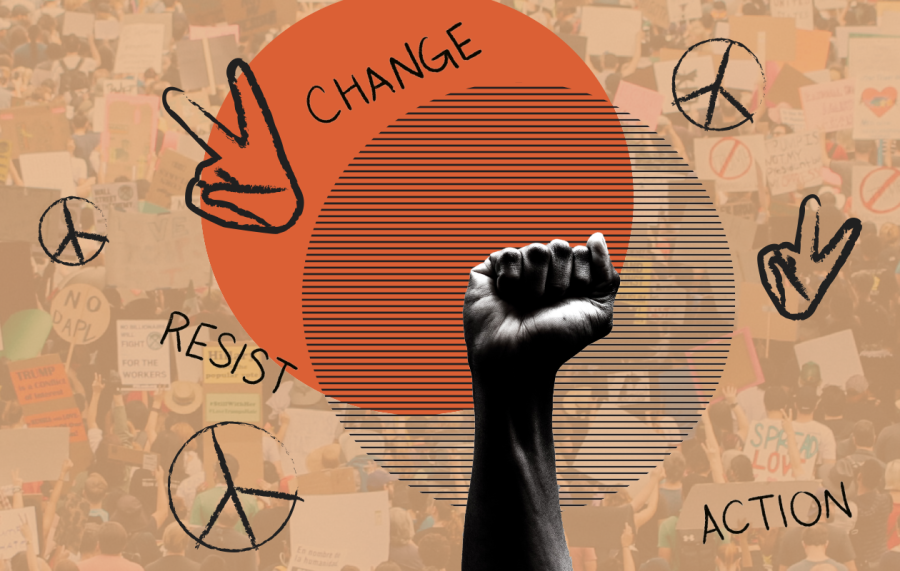Then and now: Activism at Kent State (A MAG)
“Activism is standing up for something you believe in and that’s exactly what they were doing,” senior nursing major, Caroline Lukehart, 20, said of the Kent State students who stood up for change as they protested the Vietnam War on May 4,1970.
It took courage, bravery and time to do what those students did,” Lukehart said. The pain of that day lives on nearly 50 years later, as does the inspiration to fight for a cause and strive to implement change.
Taking that inspiration and turning it into activism could be thought of as difficult, maybe even impossible, when juggling school, a job and some semblance of a life. In a world of connection, with resources on every front and a mouthpiece in our pocket that can reach thousands instantly, are we obligated to advocate? To be activists?
Lukehart is the president of the International Justice Mission student chapter at Kent State, an organization aimed to end human trafficking and ensure there are legal ramifications in all parts of the world.
She said her personal goal with the organization is to “mobilize on campus, make people aware, make sure we are doing what we can to end human trafficking.”
This student, president and self-proclaimed “baby activist” acknowledged the difficult balance between student and advocate.
“I would say I am an activist, but it’s not the biggest thing right now, trying to get through school,” Lukehart said, “It’s hard not to be self-centered and want the best for yourself and your education. But I definitely think there’s a balance.”
Rod Myers, 70, was studying political science his junior year when the events of May 4 occurred. He acknowledged there was always a group of students protesting the war, but said the majority of students were not involved in activism as they were focused on finishing their education and socializing.
“They had to maintain their grades,” he said with a laugh.
Referencing his undergraduate studies as the most satisfying part of his life, he also mentioned the contrast between economic pressure on college students then and now.
“This whole idea of pressure,” he said, “When I went to college, from an economic standpoint, there was more state support. No debt. It was affordable. Today, students are preoccupied. I shouldn’t say self-absorbed. They have more reason to get a degree and maybe not be involved and concerned about some of the political things going on.”
As students, focusing on ourselves and our studies comes with the territory of earning a degree. The line between being a healthy, dedicated student and being socially and politically dormant can be hard to walk.
Junior music major and president of Kent State Students For a Democratic Society, Colt Hutchinson said activism is a necessity.
“If they’re not doing it, they’re doing a disservice to themselves, to the future of the country, to their children,” Hutchinson said.
With busy lives and hectic school schedules, it’s easy to say, “I can’t.”
Maybe organizing a protest isn’t feasible or marching downtown is not an option, but making a change is possible in countless ways.
“Anybody that’s engaged in political discourse (is an activist),” Hutchinson said. “It’s talking to other people, it’s demonstrating. You go out and talk to someone, it’s a form of demonstrating, I think. It’s the discourse.”
With the many issues plaguing the country and world, Lukehart encourages students to get active in propelling change while in college.
“I think it’s easy to become self-centered, but I think college is also the time where you get to confront those issues head on because you have the resources given to you. You have organizations that are on campus doing it. You don’t have to go out and find them. They’re right here.” Lukehart said.
Contact her at [email protected].



